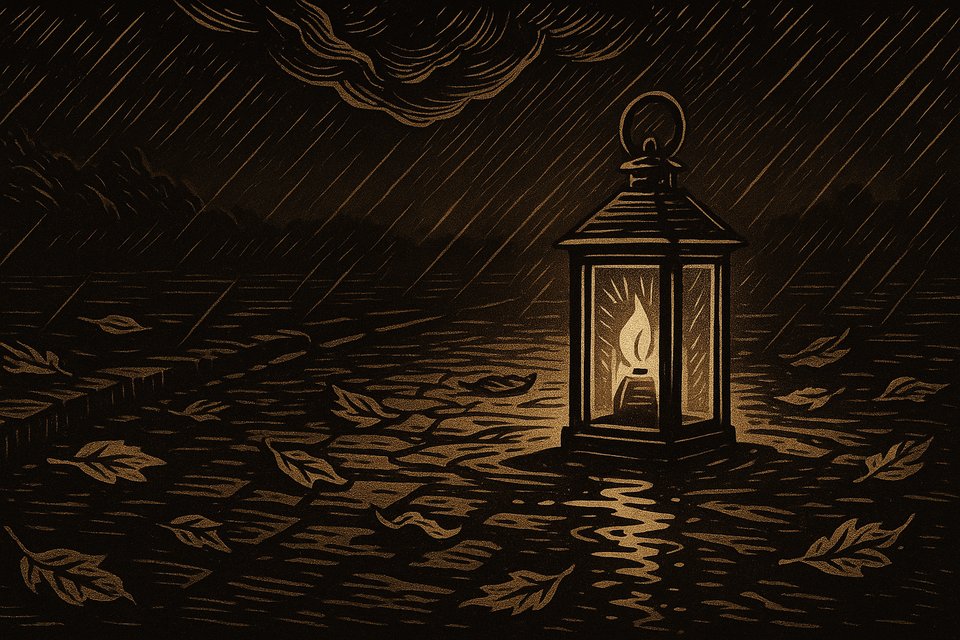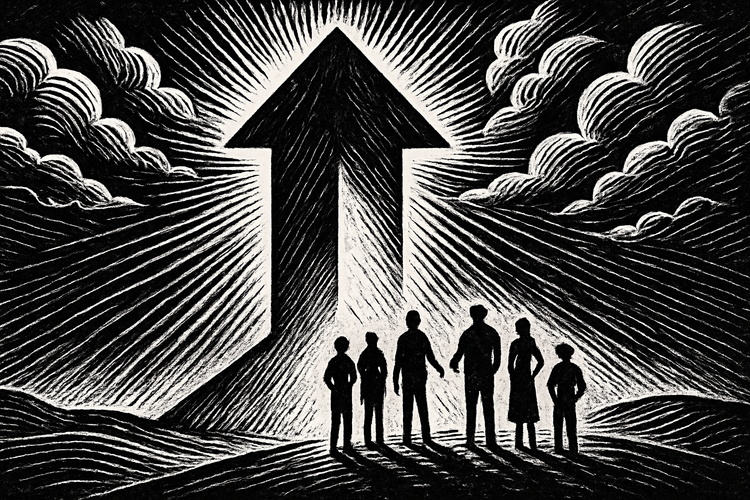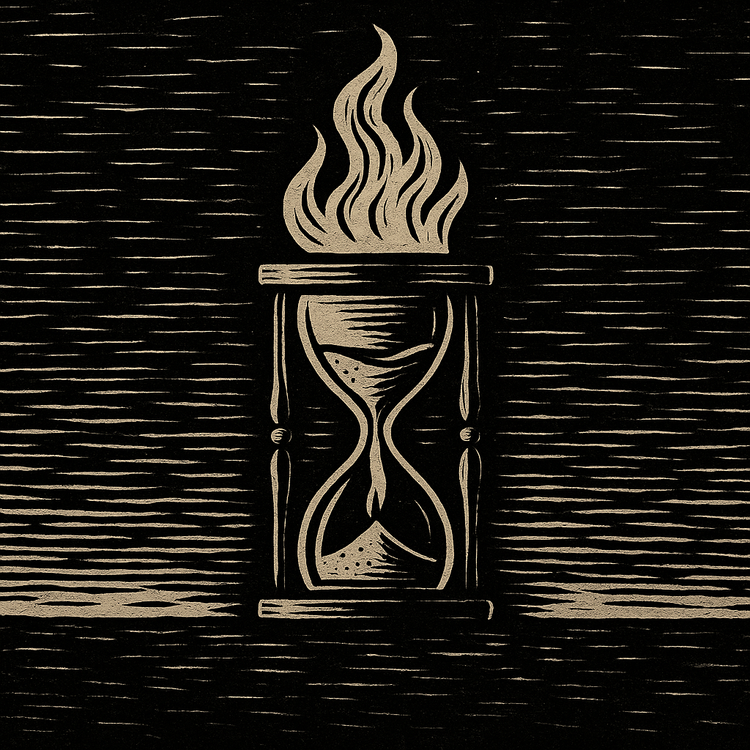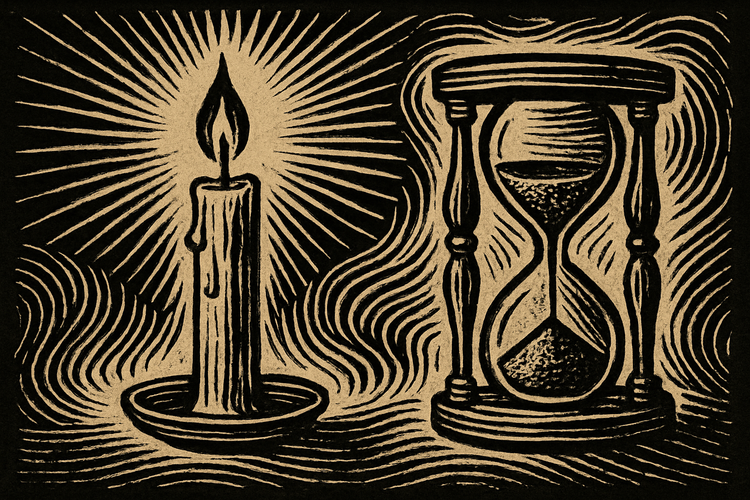The Good Place — Season 3: Choosing to Try When the Scoreboard Breaks

Spoiler Warning: This reflection contains full spoilers for The Good Place, including retrospective insights and thematic allusions. It assumes familiarity with the entire series and is written from the perspective of a rewatch.
Season 3 of The Good Place is the year the show kicks out the scaffolding. If the first two seasons built an ingenious machine for testing human goodness, this one takes a sledgehammer to the premise and asks a sharper question: when the scoreboard is broken, what still matters? The year is full of meddling and counter‑meddling, rewired timelines and reset memories, but underneath the comic whiplash sits a steady pulse: agency over control, community over isolation, action over paralysis. Here, goodness stops being a system to master and becomes a way of choosing—together—even when nothing guarantees a reward.
Interference vs. Agency
Season 3 begins on Earth, where Michael’s biggest swing yet averts the deaths that would have sent Eleanor, Chidi, Tahani, and Jason to the afterlife. Briefly, each starts to improve alone; then, just as quickly, each slides back without the friction and shelter of the others. Michael nudges them into the same orbit—a study on near‑death experiences, a conveniently aligned set of “coincidences”—and the group coalesces again. The lesson is humble and human: growth is sticky when we have the right people around us; it’s brittle when we don’t. (“Everything is Bonzer! Pts. 1 & 2")
The Bad Place notices. Trevor shows up with chipper sabotage, weaponizing niceness just enough to make Chidi doubt the ethics of his own project. Simone’s clarity and Eleanor’s stubborn pragmatism keep the study from collapsing, but the episode underlines a season‑long tension: outside hands—whether Trevor’s smirking needling or Michael and Janet’s well‑meant nudges—bend the arc of the experiment. (“The Brainy Bunch”)
Then Michael and Janet cross a line. They don’t just help; they snowplow. Lottery tickets appear on cue, friend groups and relationships are engineered, months jump by without friction. A cleared path is not a chosen one. When the scaffolding shows—when the humans glimpse the portal—the entire project threatens to collapse under the weight of its own overprotection. (“The Snowplow”)
The season’s early movement frames the central question cleanly: real moral change requires agency, but agency is hard, and help is tempting. The show grants that help isn’t bad—but control, even with love, steals the very thing it tries to give.
When the Scoreboard Breaks
Once the portal appears, the original test is invalid. The group knows the afterlife is real; the points no longer “count.” On paper, this renders their efforts meaningless. In practice, it forces the most important pivot of the year. Chidi spirals into a comic‑tragic overload—lecturing on Virtue Ethics, Consequentialism, and Deontology, then melting down spectacularly in a grocery store—because none of the frameworks seem to work when the ledger is gone. Eleanor can’t stick to her self‑centered rules; she keeps caring anyway. At the bottom of the curve, she names the only move left: form the Soul Squad and try to help other people, even if your own outcome is sealed. (“Jeremy Bearimy”)
From that decision, the season’s smaller arcs take on new resonance. In Jacksonville, the team tries to “save” Donkey Doug and mostly fails—but they help Pillboi shift toward a gentler life of care. The win isn’t control; it’s influence without possession, a better path that doesn’t require staying in the room. (“The Ballad of Donkey Doug”)
In Arizona, Eleanor confronts a wound that good outcomes can’t erase: a mother who seems finally capable of steady love, just not when Eleanor needed it. Tahani’s reconciliation with Kamilah reveals parallel scars from the same parents, softening years of rivalry into recognition. Both threads remind us that improvement arriving “too late” still matters—but acceptance is its own moral labor. (“A Fractured Inheritance”)
By midseason, the show’s stakes have shifted. Success is no longer “make the Good Place.” Success is “be the kind of people who try,” even when the machine that used to certify virtue can’t certify anything at all.
Who Are We Without the Rules?
Mid‑year, the series turns the philosophical lens directly on identity and freedom. Eleanor demands proof that her love for Chidi wasn’t just an environmental trick. If Michael built the neighborhood to push her toward tenderness, can she claim her choices as her own? She drives the question to an infinite regress—maybe Michael himself is being manipulated, turtles all the way down—because disbelief is safer than trusting that a feeling might be real. Michael counters with a quiet memory of unscripted honesty and suggests a braver possibility: even inside a designed system, real choices still break through. (“The Worst Possible Use of Free Will”)
Soon after, we meet Doug Forcett—the man who “got it right”—and the show detonates the fantasy that rule‑perfect behavior makes a good life. Doug’s anxious self‑erasure is a happiness pump: generosity emptied of joy, a life shrunk to avoid a cosmic misstep. Eleanor’s counter‑move is beautifully reckless: she tells Chidi she might love him in this timeline too, a decision made without a calculator in sight. It’s the episode’s thesis in miniature—meaning blossoms not from perfect scoring but from brave, unscored gifts. (“Don’t Let the Good Life Pass You By”)
Then the floor drops out. In Janet’s void—everyone wearing Janet’s face—the show turns a virtuoso performance into a live seminar on Locke, Parfit, and Hume. If bodies change but patterns persist, what is the “same person”? The punch line lands like a gavel: no human has reached the Good Place in 521 years. If identity is slippery, the moral accounting has been even slipperier, quietly misreading good acts through centuries of unintended consequences. (“Janet(s)”)
Michael brings that revelation to the Good Place Committee and finds a different kind of failure: kindness that is so afraid to do harm it refuses to do anything at all. Four hundred years to form an investigation team is a joke with teeth; immaculate inaction lets the damage compound while goodness congratulates itself for being careful. Down on the ground, Jason and Janet move forward anyway—naming an awkward boundary and choosing to talk—while Eleanor and Chidi finally stop circling and step into intimacy. Imperfect action over perfect paralysis. (“The Book of Dougs”)
Across these episodes, Season 3 keeps asking the same question from new angles: if the rules are unreliable and the counters are broken, what makes us “us,” and how do we move with any moral confidence at all? The answer the show keeps offering is stubbornly simple: we choose, together, and live with the truth that choosing is messy.
Seeing the Time‑Knife, Acting Anyway
By the time we reach the Judge, the season has assembled its case: the system has been counting the wrong things, and the only path forward is a new experiment. The show turns “Chidi sees the Time‑Knife” into a joke and a metaphor—an impossible vista, dazzling and incomprehensible, that vanishes before you can grasp it. That’s what trying to change a broken structure feels like. You glimpse the rightness and can’t hold it; still, you act. (“Chidi Sees the Time‑Knife”)
“Pandemonium” honors the cost of that choice. Eleanor steps into the architect’s chair just as the Bad Place rigs the roster. The sabotage lands hardest where the season has been most tender: to give the new design a chance, Chidi must be rebooted. Love yields to purpose, not because purpose matters more than love, but because love is the why behind the work. Janet offers no grand answer—only a truth the season has been saying in a dozen keys: the point isn’t a tidy solution; it’s the beauty that glows through chaos, the people who make the unbearable bearable. Eleanor takes the hit, steadies the center, and the experiment begins under storm clouds. (“Pandemonium”)
Season 3 ends on a cliff that isn’t a question mark so much as a vow: chaos will keep coming; we will keep choosing. The show that once dazzled with reveals now trusts something quieter—that goodness looks like action under uncertainty, humility in the face of complexity, and fidelity to one another when the big answers refuse to land.



Comments ()